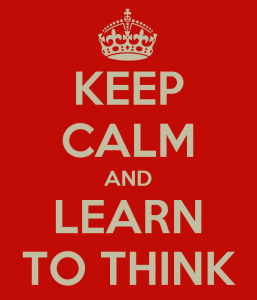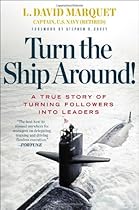A couple of posts down, I reiterated the importance of understanding of how your product is made. If you are in the business of “making things” your ability to improve your product reaches its limit at your level of understanding how to make it. Lean Process and Product Development (below) addresses this same topic.
Now let’s apply this to the management of production.
In the west, it seems that one of the perks of success is increasing isolation from where the work is done. This may be because western management systems separate the role of “administration” as a generic process from the specialty roles that actually get stuff done. The assumption is that a skilled administrator can successfully administrate just about anything.
As a result, perhaps some managers strive to detach themselves from the details of “getting stuff done” as an unconscious effort to increase their status. They shift to administration type tasks.
These tasks tend to relate to driving financial results. The focus and discussions tend to be around “earned hours” and which shipments to pull ahead to invoice for revenue. They involve skills like expediting (meaning queue jumping) the “hot” jobs, or the ones most likely to make an immediate impact on a financial metric.
The problem comes about when production alone tries to resolve revenue shortfalls with these actions. Pulling more work onto the shop floor – starting jobs earlier – might “keep people busy” but the overproduction just hides the fact that sales volume is below production capacity. Now sales not only has to close the initial shortfall (if you want REAL revenue to keep up), but they also have to double up their efforts to re-fill the pipeline. Otherwise, the “earned hours” or “absorption variance” shortfall is just postponed (and made worse) by this kind of action.
Back on the shop floor, there isn’t anyone looking after the system. It is generally assumed to require this continuous intervention to operate at all, the intervention in turn disrupts stability, which escalates the problem.
But even more, I am troubled, frankly, by how many times I have seen production managers have very poor production management skills.
First and foremost is simple systems thinking. By this I mean understanding the consequences of your decision on the overall stability of the process. In other words, if you break it, you are responsible for ensuring it gets fixed. And to be sure, jumping queues, telling workers to break the flow is breaking it. Note that mastery of how the accounting system keeps score is not systems thinking for the production process. And breaking the process to manipulate the cost accounting is… ?
Of course, if these things are “business as usual” then we are teaching people to do these things as a matter of routine, not exception. Chaos ensues, and there is no attempt at all to worry about the consequences. We’ll deal with that the same way tomorrow.
After understand how the system works, there are some very basic things that any manufacturing manager needs to know. Most of these things also apply to non-production processes, but that does take a little more thinking.
Though it is (hopefully) intuitively obvious that level production is more efficient than ramping things up and down every day (hour!), very few production managers make any effort to establish any kind of level pace.
The single most popular post on this site is “Takt Time – Cycle Time.” I initially wrote it to make the point that the term “cycle time” is ambiguous and we need to be clear about which definition we mean when we use the term, and that we need to understand the “Why?” behind takt time vs. taking a blind, rote approch. Take a look at the comments chain. It isn’t about the questions being asked so much as who is asking them. Whose job is it to understand production management in these organizations?
You may not have a “takt time” in the literal sense, but you do have a rate that things must be done in order to succeed by the end of the day.
Unless you have infinite flexibility, every process was designed around some level of capacity (which means a rate!), even if by accident. But, all too often, I see managers making decisions about hiring more people, buying more equipment, even putting on extra shifts, without doing the underlying math of what capacity is required, what capacity they have, defining the gap, identifying the obstacles, and then deciding on countermeasures. (with “more stuff” as an absolute last resort)
It isn’t about “how many we have to make.”
It is about “how fast should we be making them?”
This, I guess, is the nuance that gets lost.



